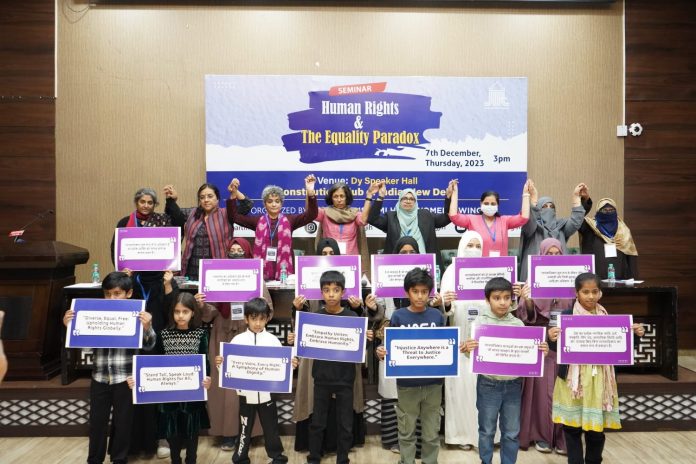– Mohd. Naushad Khan
Academicians, social and human rights defenders as well as children, students and journalists, joined hands, displaying placards to tell the world community that injustice anywhere is a threat to justice everywhere at a seminar organised by Jamaat-e-Islami Hind Women’s Wing on Human Rights and the Equality Paradox at the Constitution Club here Thursday.
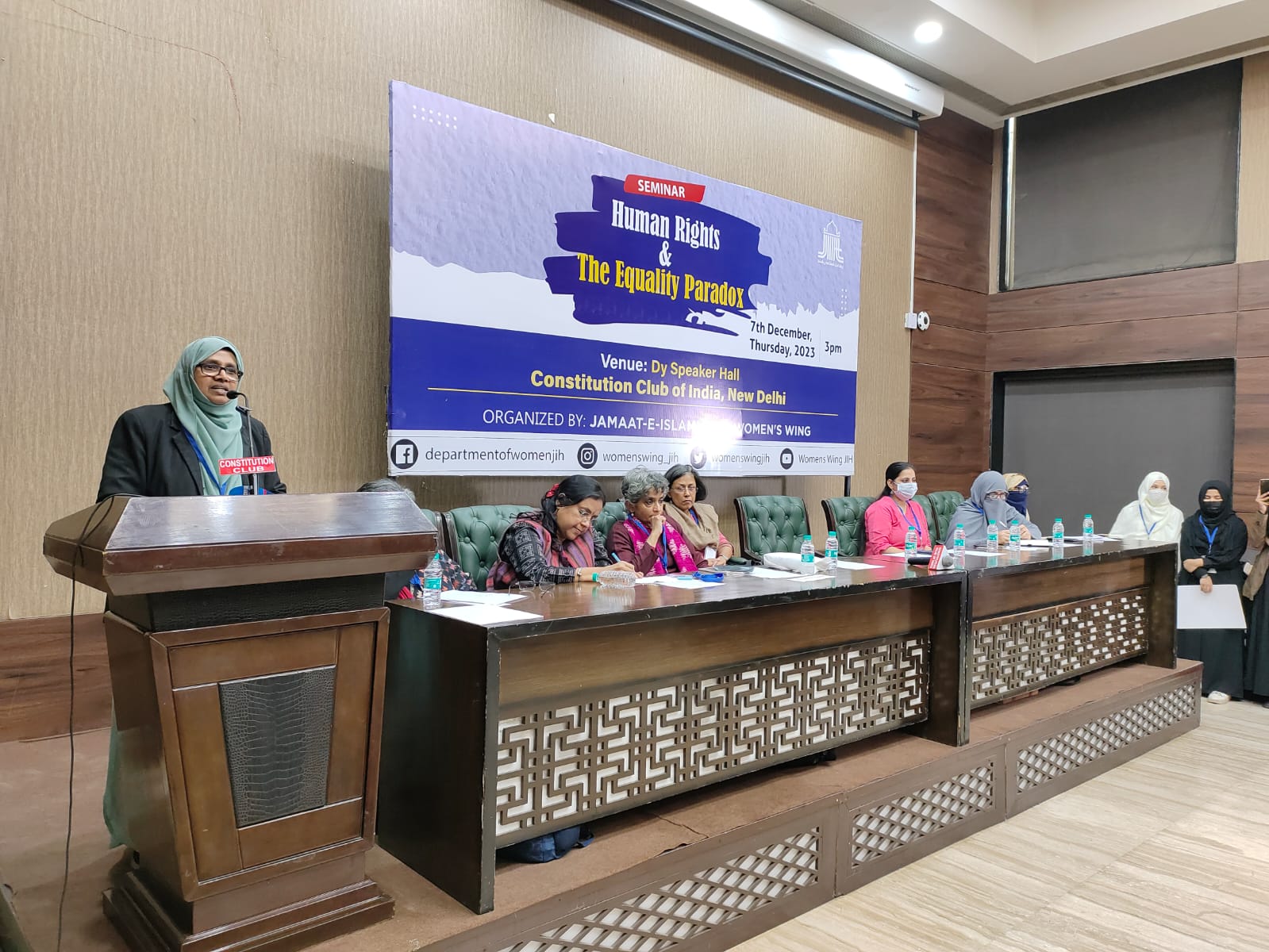 Rahamathunnissa A., National Secretary Jamaat-e-Islami Hind, in her inaugural address, said that informed advocacy is essential to address the challenges of equality paradox and ensure human rights for all human beings. Citing the examples of the ongoing inhuman onslaughts on the innocent children and women in Palestine and atrocities against certain selected groups and attempts of ethnic cleansing and genocide in different countries across the globe including India and the double stand taken by human rights and social activists, international organizations, politicians across the world as well as the media, she urged that much has to be done by those who still believe in humanity and justice.
Rahamathunnissa A., National Secretary Jamaat-e-Islami Hind, in her inaugural address, said that informed advocacy is essential to address the challenges of equality paradox and ensure human rights for all human beings. Citing the examples of the ongoing inhuman onslaughts on the innocent children and women in Palestine and atrocities against certain selected groups and attempts of ethnic cleansing and genocide in different countries across the globe including India and the double stand taken by human rights and social activists, international organizations, politicians across the world as well as the media, she urged that much has to be done by those who still believe in humanity and justice.
She further said, “Whenever we talk about human rights, we need to ask which humans rights are you talking about when you exclude many people from giving them their basic rights – the right to be born into this world, right to breathe fresh air, right to get educated, right to get food, right to get a normal life?”
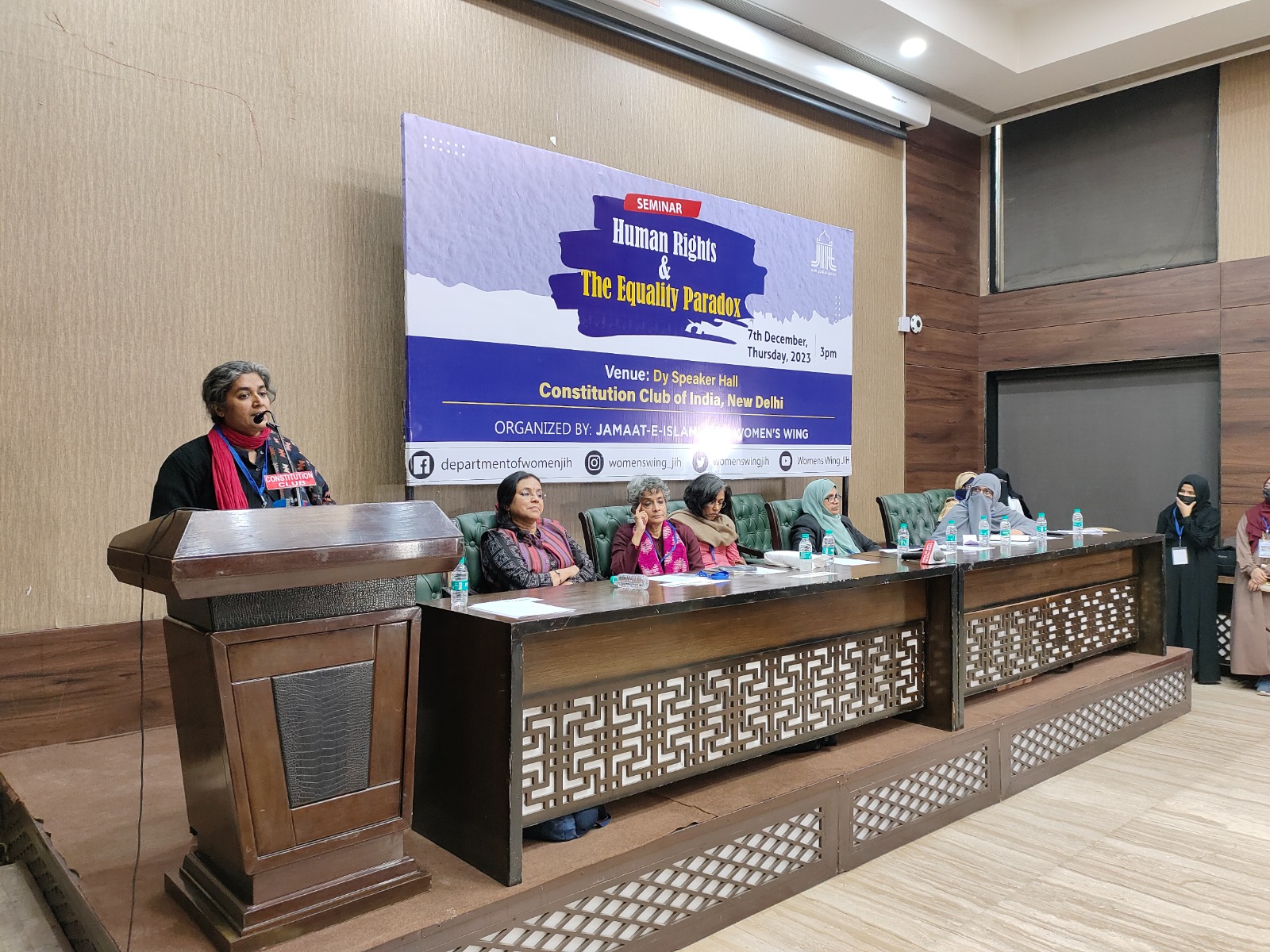 Jenny Rowena, Assistant Professor University of Delhi said that many are out of the boundary human and delegitimization of human rights is constantly happening. Explaining the way her husband Professor Hanie Babu was trapped into jail by purposely creating false evidence she stated that the real problem is structural. Around thirty thousand Adivasis are pushed into jail, charging UAPA through this process.
Jenny Rowena, Assistant Professor University of Delhi said that many are out of the boundary human and delegitimization of human rights is constantly happening. Explaining the way her husband Professor Hanie Babu was trapped into jail by purposely creating false evidence she stated that the real problem is structural. Around thirty thousand Adivasis are pushed into jail, charging UAPA through this process.
 Bhasha Singh, Journalist and writer opined that equality paradox and human rights have direct connection with democracy. The Constitution of India assures equality for all but it depends upon who implements it. Politics decides human rights across the world and unless the voting power is not used properly, no change can be expected. She also said that the Media has now changed into an industry to create perception.
Bhasha Singh, Journalist and writer opined that equality paradox and human rights have direct connection with democracy. The Constitution of India assures equality for all but it depends upon who implements it. Politics decides human rights across the world and unless the voting power is not used properly, no change can be expected. She also said that the Media has now changed into an industry to create perception.
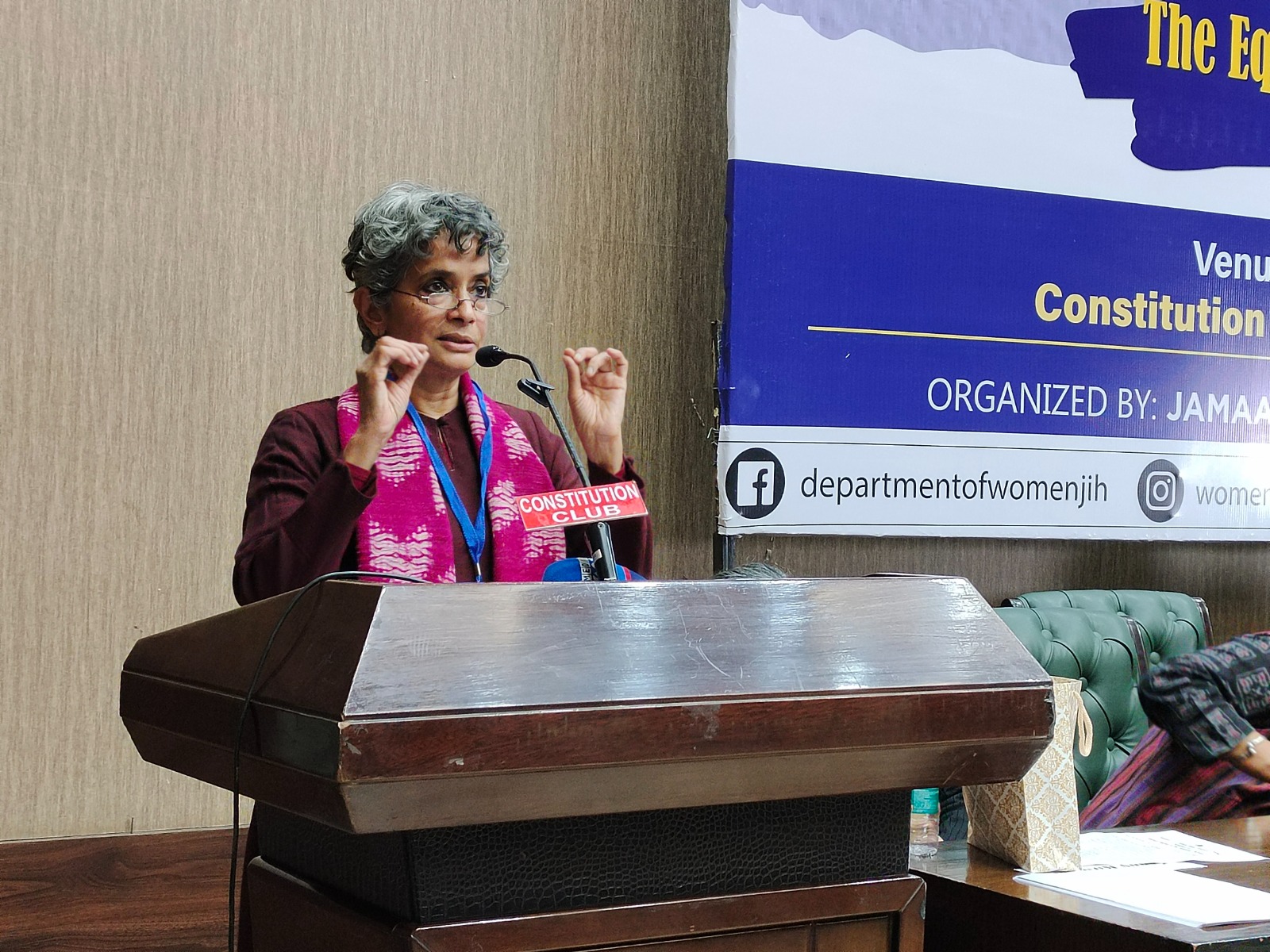 Nivedita Menon, Professor at Jawaharlal Nehru University said that the very Preamble of the Constitution and every person of integrity has been criminalized in India. She threw light on the Islamophobic policies of the present government. Equality doesn’t mean sameness or uniformity. Recognizing differences is also essential. Keep thinking, talking and debating alive, she urged.
Nivedita Menon, Professor at Jawaharlal Nehru University said that the very Preamble of the Constitution and every person of integrity has been criminalized in India. She threw light on the Islamophobic policies of the present government. Equality doesn’t mean sameness or uniformity. Recognizing differences is also essential. Keep thinking, talking and debating alive, she urged.
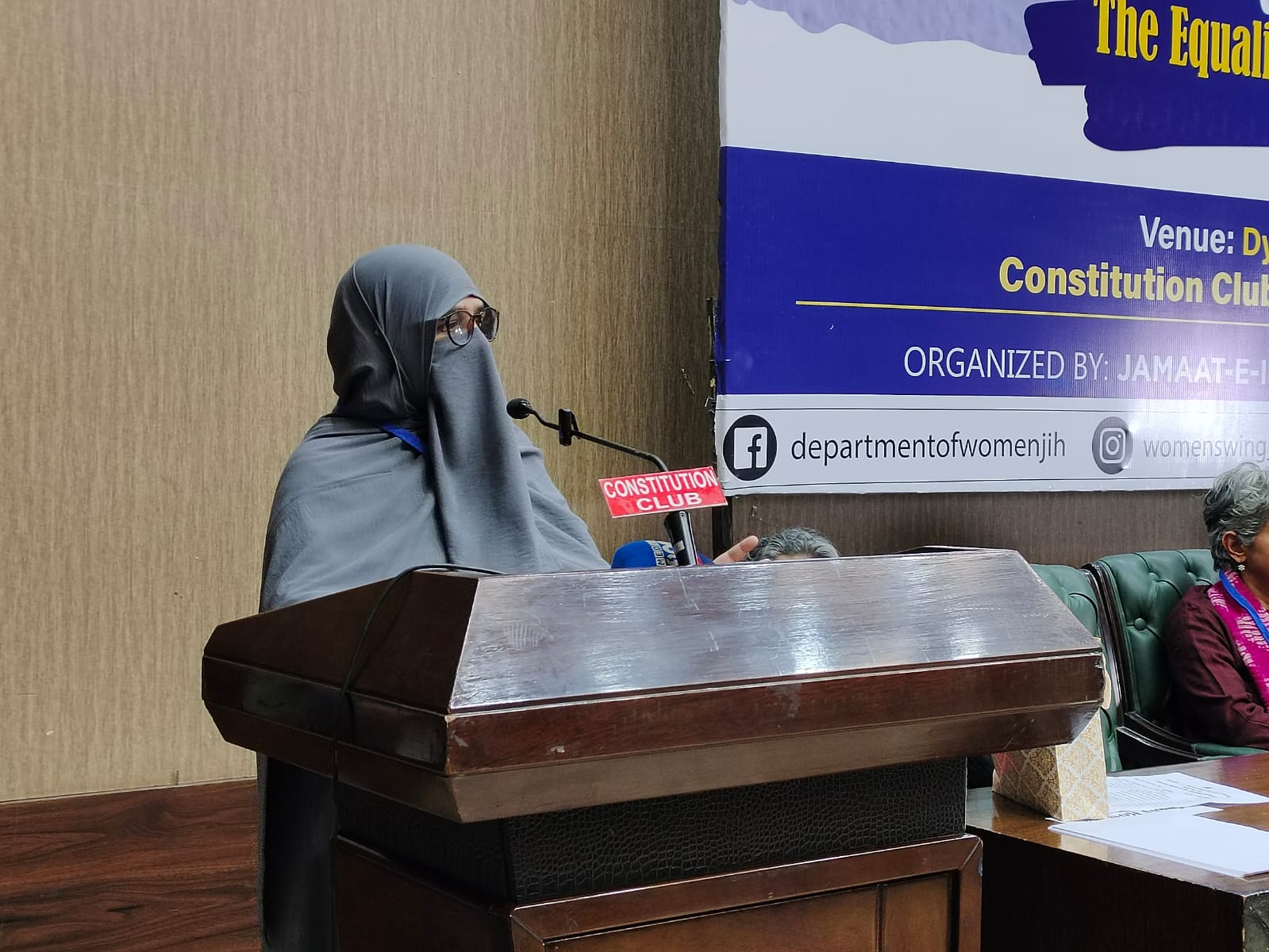 Dr. Sabiha Khanam, a social activist explained the history of UDHR and the 30 articles and how each article has been getting violated in Palestine. She expressed her concern over the state sponsored violence in India and how spaces are shrinking in the country with denying permission even to protest. She advocated that if a better, safer and more liberated world is to be created, we shouldn’t stop trying for changing.
Dr. Sabiha Khanam, a social activist explained the history of UDHR and the 30 articles and how each article has been getting violated in Palestine. She expressed her concern over the state sponsored violence in India and how spaces are shrinking in the country with denying permission even to protest. She advocated that if a better, safer and more liberated world is to be created, we shouldn’t stop trying for changing.
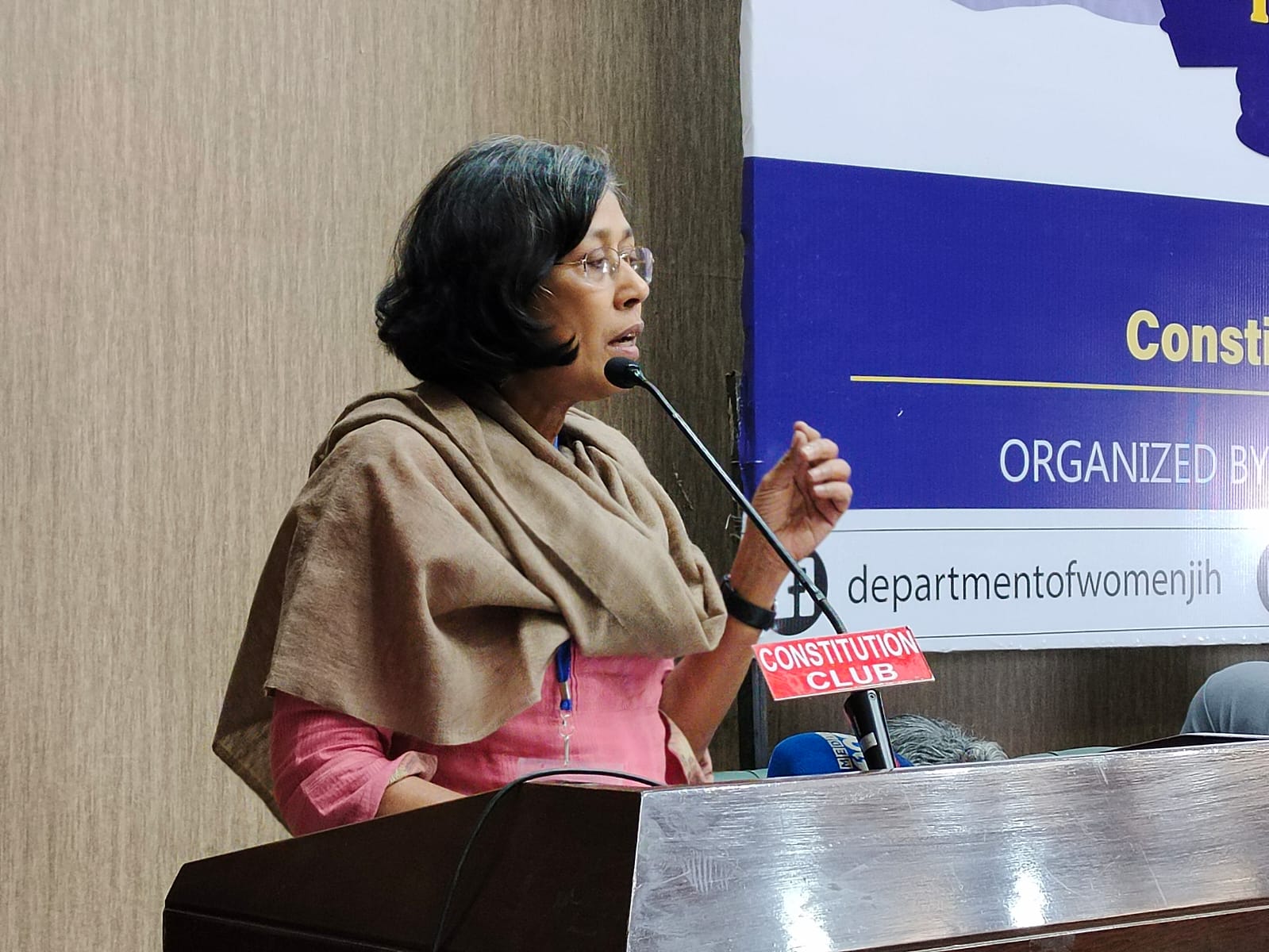 Nandini Sunder, a sociologist expressed her strong opinion that whatever is happening in Palestine is against the Geneva Convention. We must boycott Israeli products and never forget that Palestine was there and will be there. Regarding India, she reminded the contribution of women also in the framing of the Constitution and we should never lose hope.
Nandini Sunder, a sociologist expressed her strong opinion that whatever is happening in Palestine is against the Geneva Convention. We must boycott Israeli products and never forget that Palestine was there and will be there. Regarding India, she reminded the contribution of women also in the framing of the Constitution and we should never lose hope.
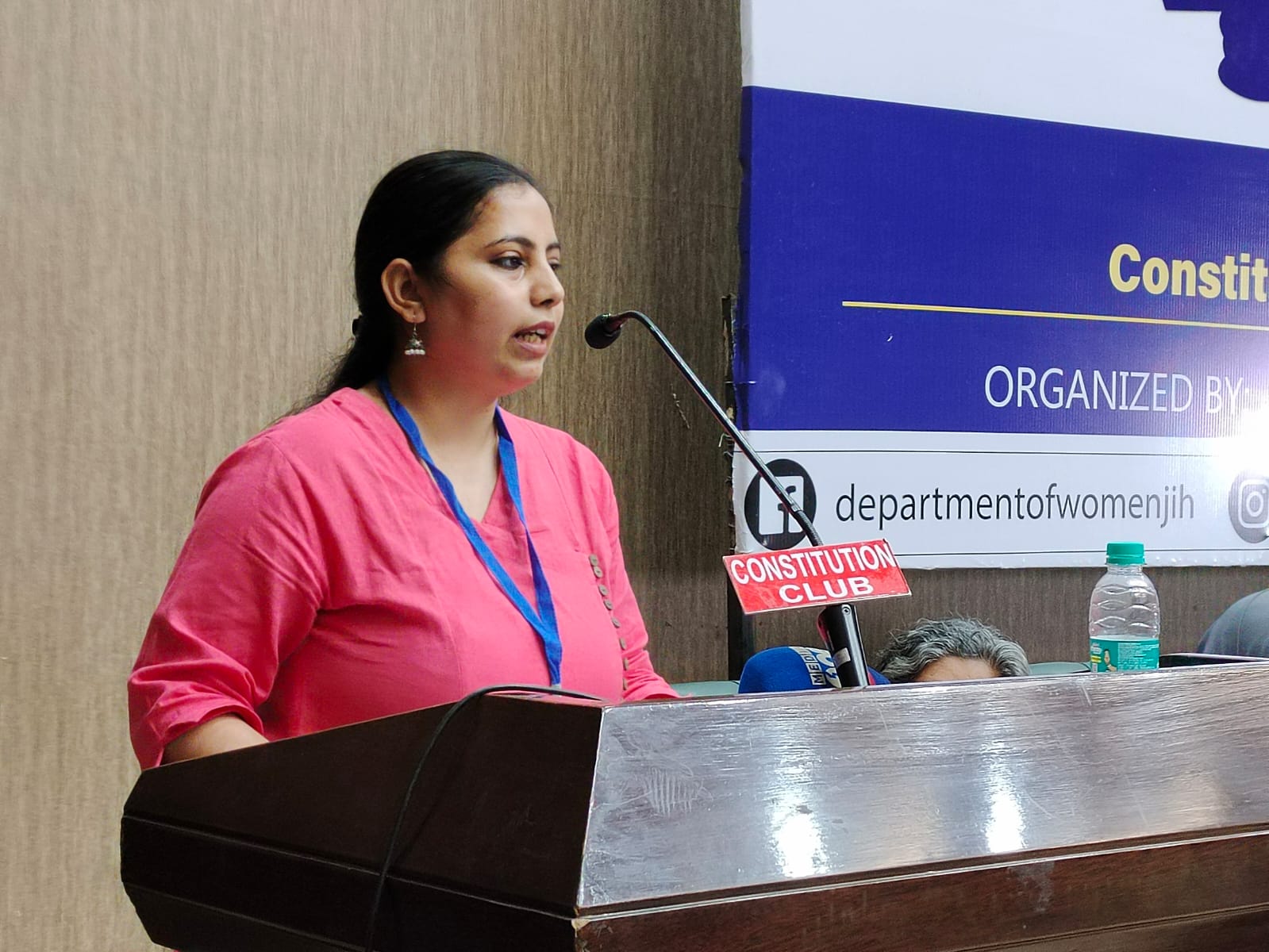 Heena Fatima, a Journalist from the Print, sharing her field experience as a journalist, expressed concern over how systematically the ending of minorities is going on in India. Citing the example of a 13-year-old girl who was raped in Allahabad, she asked what human rights can we expect in a country where getting ‘roti’ for a girl like her is a luxury and voicing for justice is dangerous. She said that women can come out and do a lot in this regard.
Heena Fatima, a Journalist from the Print, sharing her field experience as a journalist, expressed concern over how systematically the ending of minorities is going on in India. Citing the example of a 13-year-old girl who was raped in Allahabad, she asked what human rights can we expect in a country where getting ‘roti’ for a girl like her is a luxury and voicing for justice is dangerous. She said that women can come out and do a lot in this regard.
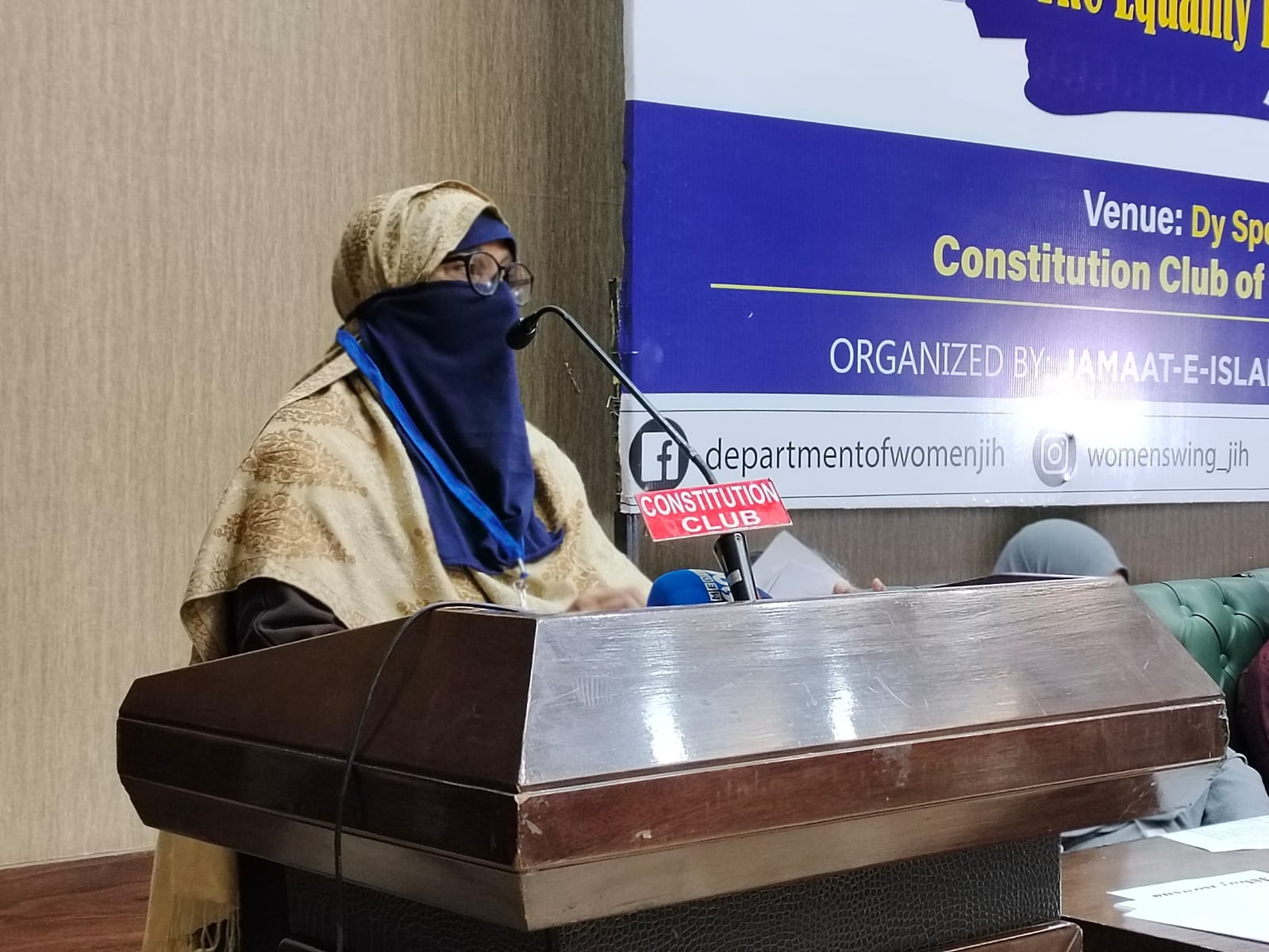 Shaista Rafat, JIH National Secretary, in her concluding address, said that accountability is a key tool in helping to prevent violations of human rights across the world. We have witnessed that every single voice asking questions put together makes a difference. Never doubt that even a small group of committed and concerned citizens can change the world.
Shaista Rafat, JIH National Secretary, in her concluding address, said that accountability is a key tool in helping to prevent violations of human rights across the world. We have witnessed that every single voice asking questions put together makes a difference. Never doubt that even a small group of committed and concerned citizens can change the world.
Sana Tazeen Fatima, Uzma Ausaf, Nada Tasneem and Swaliha Inam also addressed the gathering.
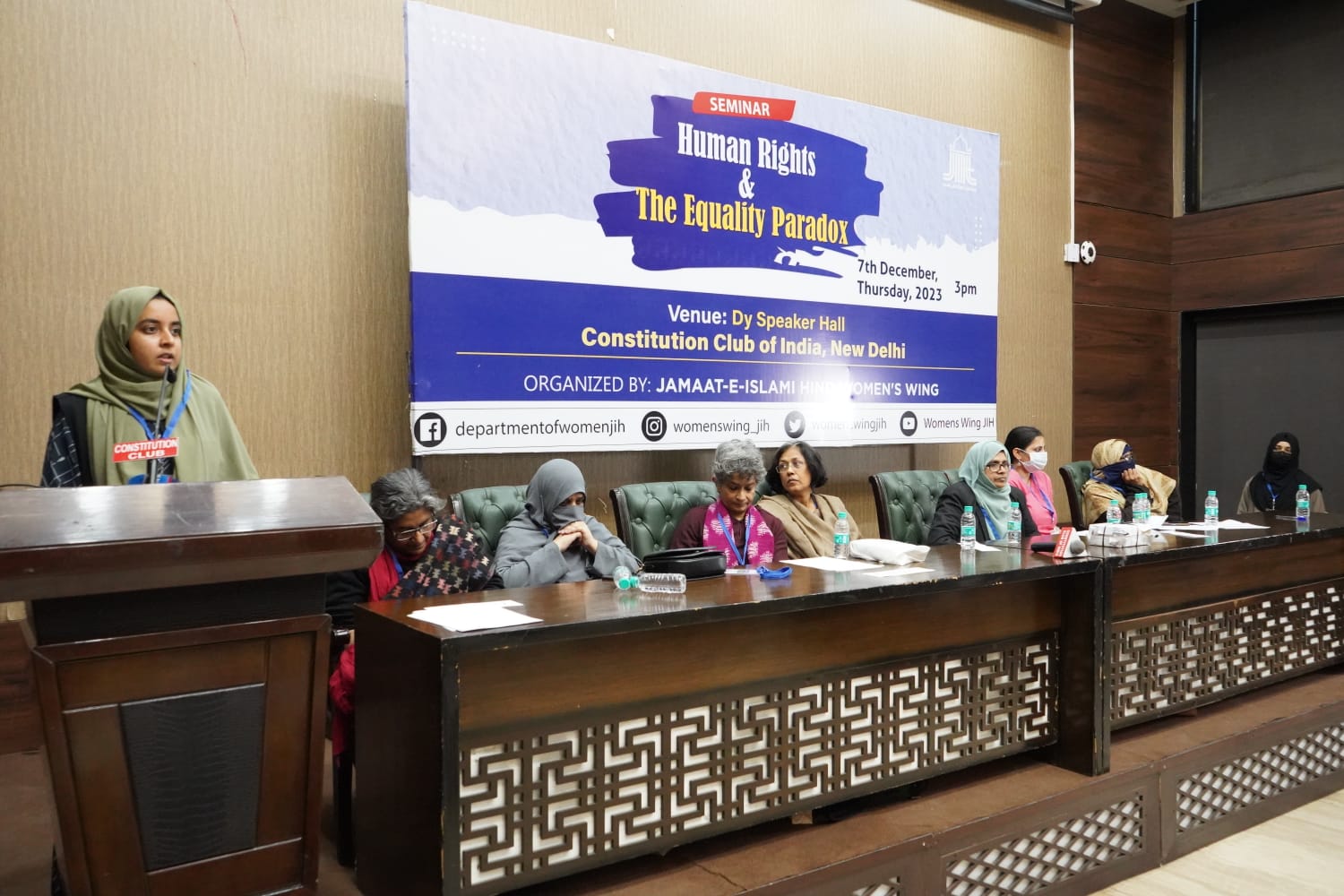 Shayma S, the sub editor of Aura E Magazine compered the proceedings.
Shayma S, the sub editor of Aura E Magazine compered the proceedings.


